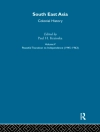Great revolutions make history. Conservative resistance and counter-revolutions only delay their progress. The French revolution invented modern politics and democracy, the Russian revolution paved the way for the socialist transition, while the Chinese revolution connected the emancipation of those peoples oppressed by imperialism with the path to socialism. These revolutions are great precisely because they are bearers of undertakings that are far ahead of the immediate demands of their time. beacons that illuminate the still unfinished struggles of the peoples for the realization of these goals. It is impossible to understand the contemporary world by ignoring these great revolutions. To commemorate these revolutions, says Samir Amin, one needs both to assess their ambitions (the utopia of today will be the reality of tomorrow), and to understand the reasons for their temporary setbacks. Conservative and reactionary minds refuse to do so—they wish us to believe that great revolutions have been nothing more than unfortunate accidents, that the peoples who have made them were carried away by their deceitful enthusiasm, diversions from the normal current of history. This collection of essays helps to situate the lessons of the October 1917 Russian Revolution from a perspective of 100 years.
Table des matières
Introduction
The October 1917 Revolution began the transformation of the world
Reading Capital, reading historical capitalisms
Revolutions and counter-revolutions from 1917 to 2017
The sovereign popular project: The alternative to liberal globalization
The agrarian question, a century after October 1917
A propos de l’auteur
Samir Amin, born in Cairo in 1931, is one of the world’s greatest radical thinkers -a creative Marxist. He is the director of Third World Forum (Forum du tiers monde), Dakar and President of the World Forum for Alternatives. He has published numerous books and papers. He holds a Diploma of Institut d’Etudes Politiques, Paris (1952); Diploma of Statistics and Mathematics, Paris (1956), Ph D Economics, Paris (1957); Professor of Economics as of 1966. He has been: Head, Research Dep, Organisation of Economic Development, Cairo (1957-1960);m Advisor, Ministry of Planning, Bamako, Mali (1960-1963); Professor at IDEP, Universities of Poitiers, Dakar, Paris (1963-1970); Director, UN-IDEP, Dakar (1970-1980); Since 1980, Director, Third World Forum, Dakar. Since 1997 President of the World Forum for Alternatives.












